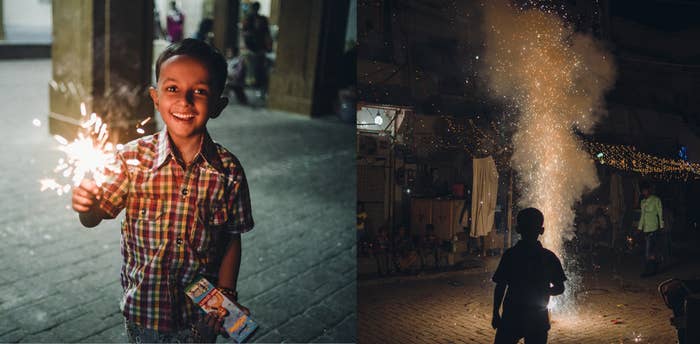
It's easy to forget that it's Diwali here in Karachi. On Wednesday evening at the Shri Laxmi Narayan Mandir, the temple’s caretaker Kailash Wishram has just returned from work.
“It was not a holiday for us today and nor will I get the day off tomorrow,” he explains. “I work with a lawyer and I asked him if I could leave early as I had to finish shopping for my kids.”
His two daughters, aged two and four, are dressed identically in lettered baseball jackets. They’re waiting for their father to take them out for ice-cream.
On the floor near the puja ghar, plates of coloured rice have been placed next to a deg of homemade halva. Kailash’s wife fixes the goddess Laxmi’s crown and adjusts golden tinsel draped on the idol.
“Out!” she says, snapping her fingers towards the door. “We aren’t ready yet.”
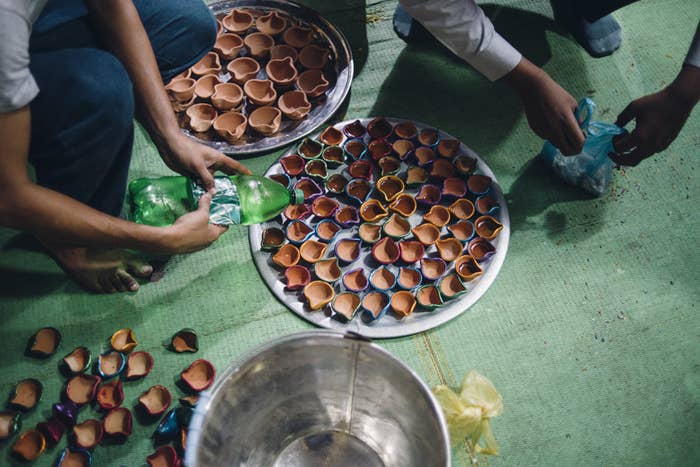
Kailash and his family are members of Pakistan’s second largest religious group. The Laxmi Narayan Mandir where they live was built in 1943 on the banks of a creek. Piped saxophone music can be heard here all evening as Port Grand, a food and entertainment complex, was built along the waterfront in 2011.
Inside the mandir, Kailash’s girls play with a handful of children as rats scurry across the floor and disappear down the steps to the water.
Kailash is territorial about the mandir’s waterfront. This is the only temple in the city with access to water. He says another temple located just 20 feet away was demolished to make way for Port Grand’s "food street".
In 1992, a few days after the Babri Masjid was demolished, Kailash and his family lost their home in the mandir. A mob set fire to it. Kailash’s family rebuilt their house and continue to live here.
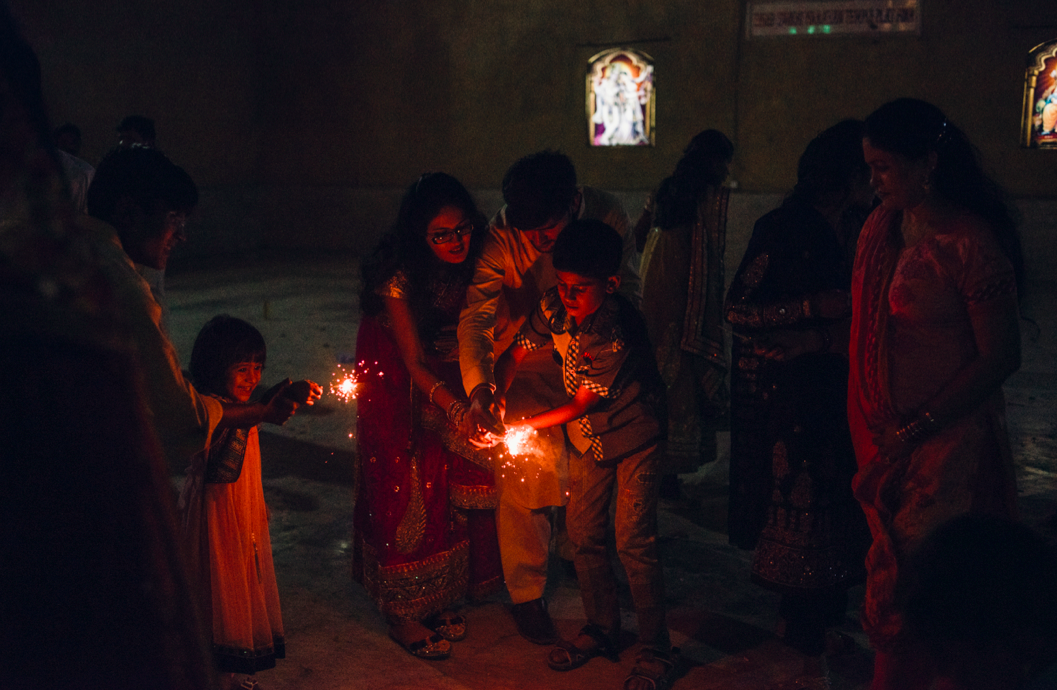
As evening turns to night, friends and family drop by. Some bring firecrackers and sparklers with them, and Kailash hurriedly takes his dog, Tyson, inside his home. Inside the mandir’s enclosed walls, the bangs are ear-splittingly loud. The noise doesn’t bother Kailash or his family though.
“Khul ke hum koi cheez nahin kartay ab,” he says. "We don’t do things openly anymore."
“We control ourselves and stick to small crackers as the policemen here for our security have advised us not to make too much noise," he continues. "The people at Port Grand get disturbed.” Kailash isn’t one to back down, though – on the eve of a big wedding at Port Grand, he lodged multiple complaints against the use of fireworks at the event.
Tonight, Kailash and his family had planned to visit Swaminarayan Mandir, a 166-year-old temple in the heart of the city. In 1947, this mandir was home to refugees during the partition of India and Pakistan. In the days leading up to Diwali, Kailash was eager to visit the mandir, saying the sight and sound of fireworks there would be unlike any other. His wife, however, put her foot down. There will be no visit to the mandir.
“There’s too many men there right now and we have our young girls to think of,” explains Kailash’s sister Paras.
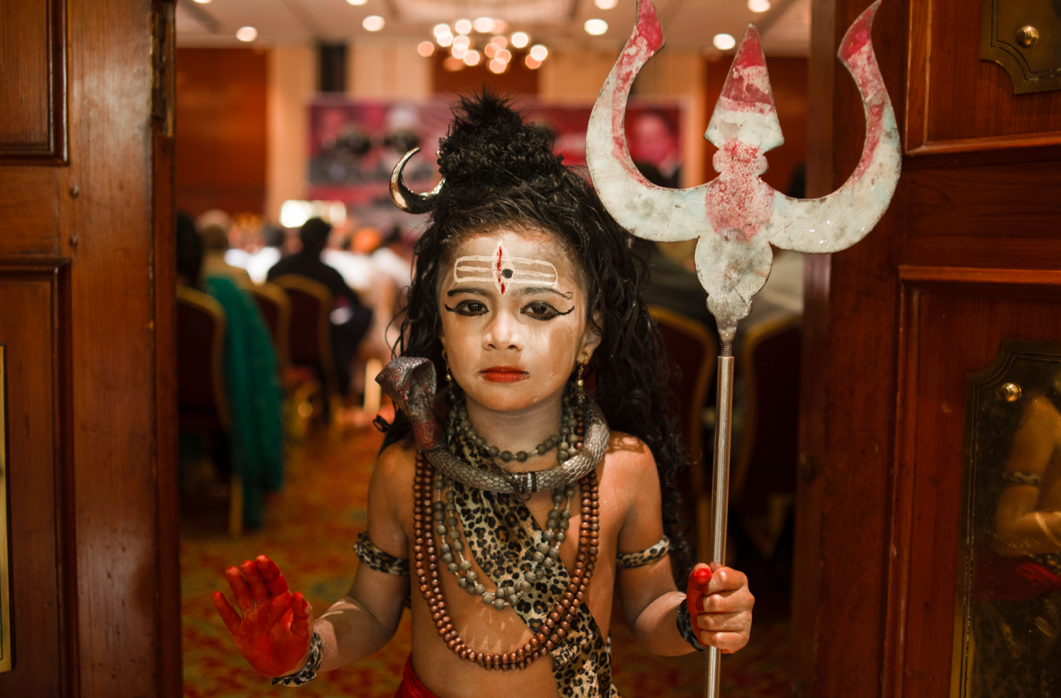
Uniformed security officials guard the entrance to Swaminarayan Mandir, patting down anyone entering the premises. At least 200 policemen patrol the area, which is home to many Hindu families. Inside, TV crews and reporters swarm around young men setting off firecrackers. In the haze of coloured smoke from ‘disco bombs’, fairy lights and sparklers, the mandir is aglow.
Like Kailash, however, many families choose to skip the mandir in favour of celebrations at home. According to Ravi Pinjani, a lawyer, this may have something to do with income disparity in the community. “With greater wealth comes a greater appreciation for private space,” he feels. Wealthier or middle-class families may not participate in communal events at the mandir, he suggests, simply because they do not feel the need for the safety net that such gatherings offer.
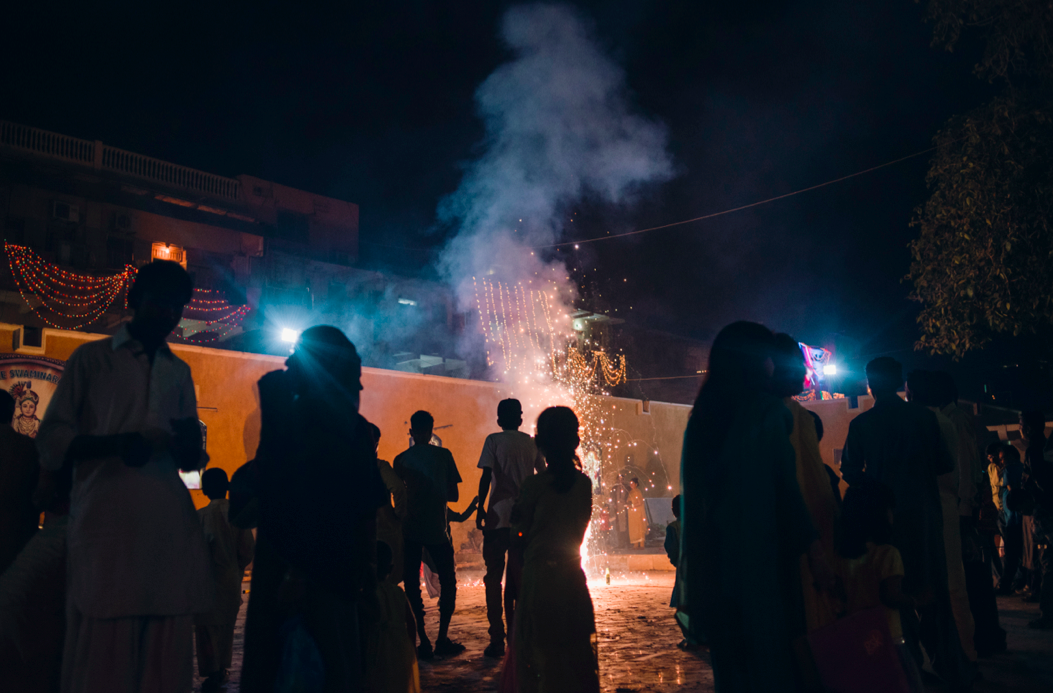
“As you grow richer, your capacity to be an individual – to not rely on the help of your community during bad times – increases,” he says. “Perhaps with lower-income families, their interests and their safety lies in cohesion and coming together at the mandir renews these bonds.” And as the number of his family members left in Karachi shrinks, Ravi prefers to celebrate at home. Last year, politician and patron-in-chief of the Pakistan Hindu Council stated that 5,000 Hindus leave Pakistan for India annually.
Businessman Ashok Chawla, however, says a trip to the mandir on Diwali is determined by budget: can you afford to celebrate in your home and host friends and family? Ashok’s Diwali parties are infamous in the city, and a party two years ago was the biggest yet, with more than 100 guests streaming into his home until 5 a.m.
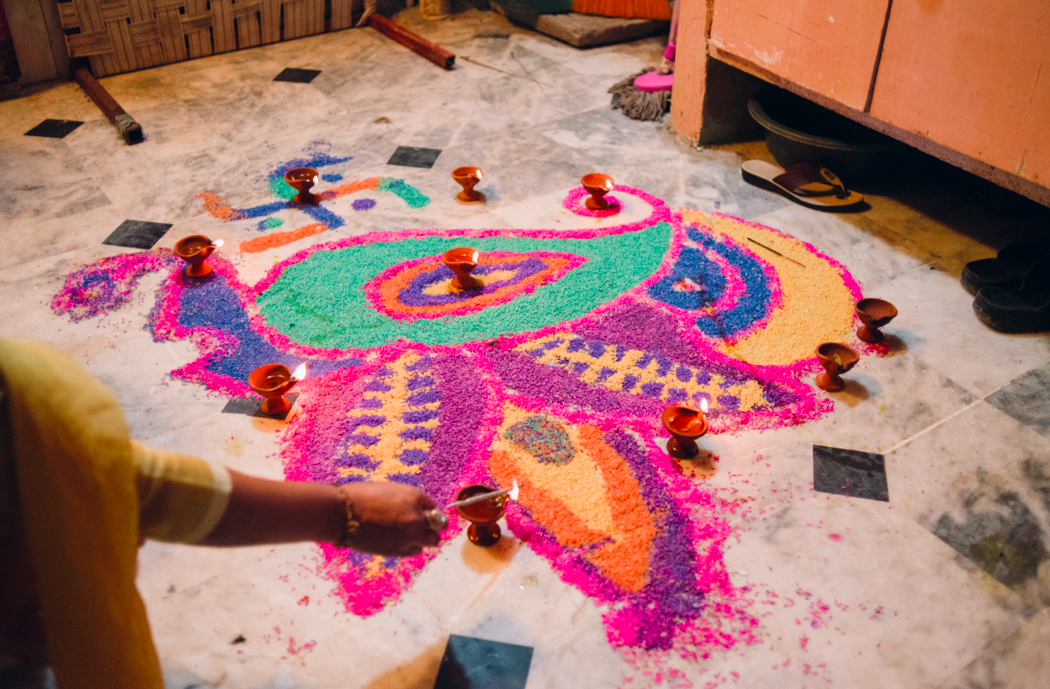
Both Ravi and Ashok say the Diwalis of their childhoods are no more – the celebrations aren’t as loud or colourful, and not nearly as much fun. “When we were children, we had more Hindu families living in our apartment complex, and we all knew each other – even the Muslim families,” explains Ravi. “We used to go crazy with the fireworks and no one complained. Instead, they would join in.” Today, it is more likely that police officials will pay a visit to a Diwali celebration after neighbours complain of noise.
“The situation in the city and the country is such that people are scared,” says Ashok. “A motorcycle will backfire and we get freaked out.”
